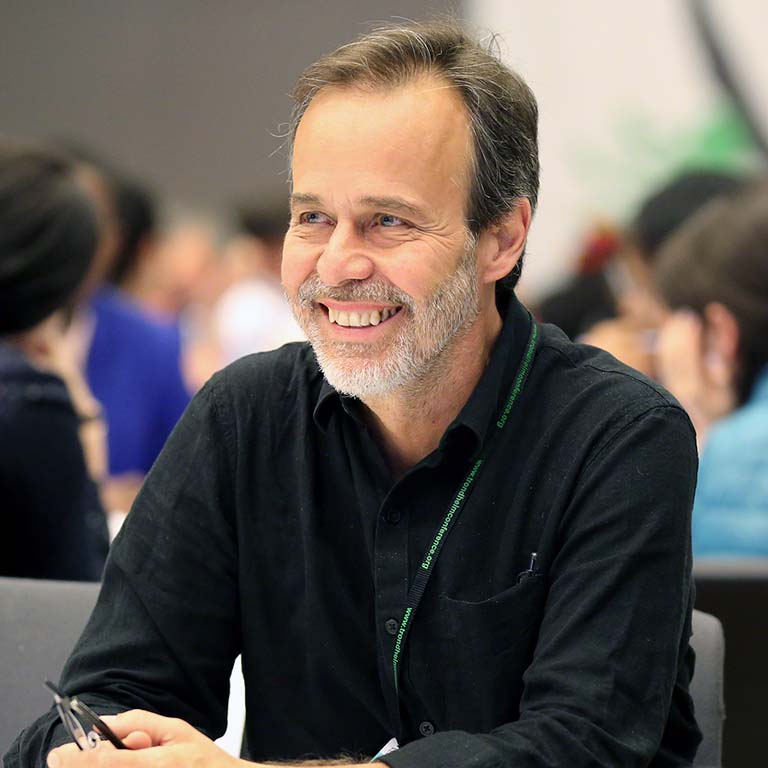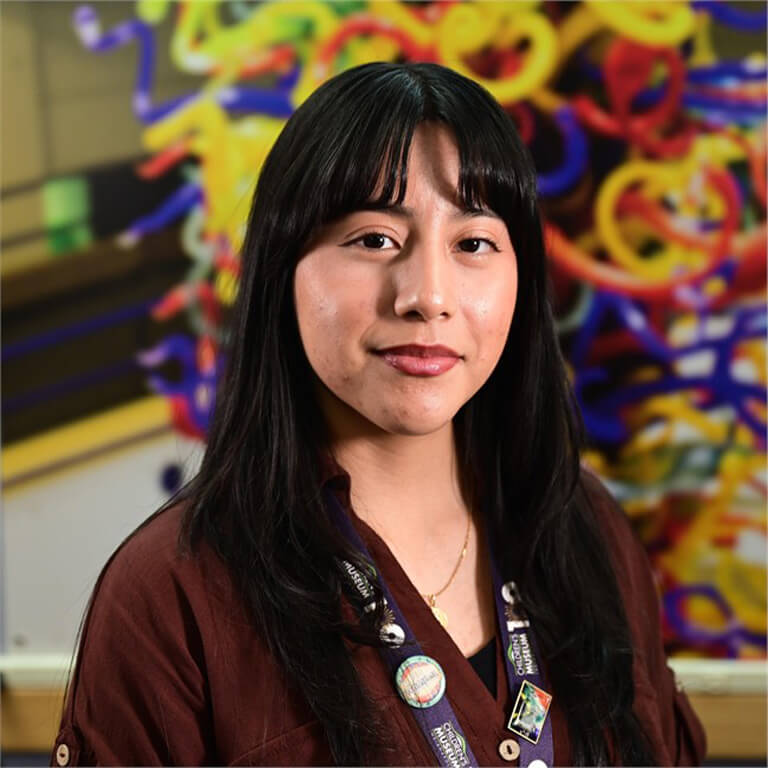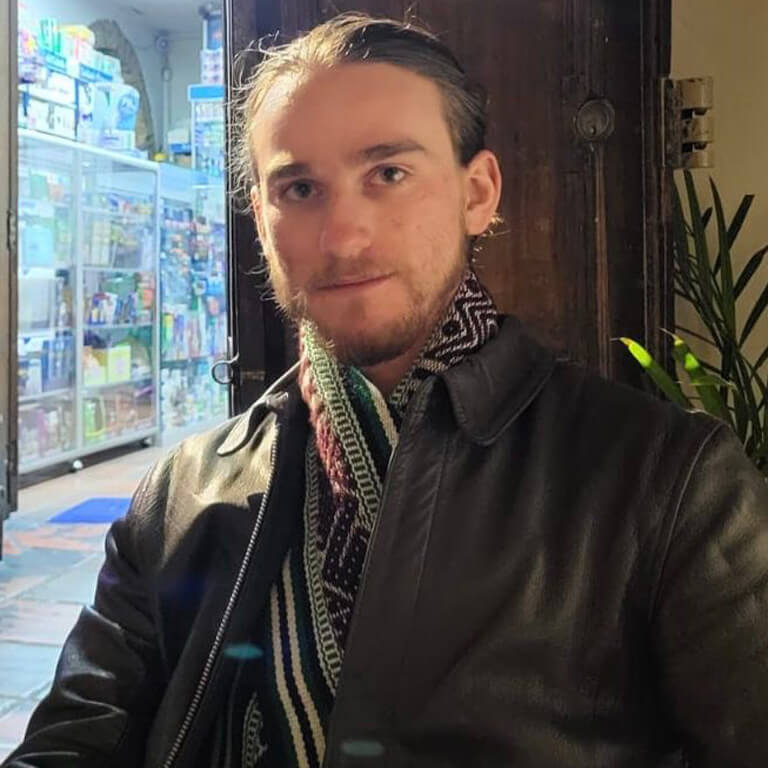Faculty Spotlight
 In April, CLACS affiliated faculty member, Prof. Eduardo S. Brondizio was elected to the American Academy of Arts and Sciences. A Distinguished Professor of Anthropology and director of the Center for the Analysis of Social-Ecological Landscapes (CASEL), Brondizio’s work is known for linking on the ground research in the Brazilian Amazon to studying human-environmental interactions at the global level, and examining their interconnections. At IUB, in addition to CLACS, Brondizio has adjunct appointments in the Department of Geography, the O’Neil School of Public and Environmental Affairs, the Individualized Major Program (IMP), and Native American and Indigenous Studies (NAIS). He is also closely associated with the Ostrom Workshop, the Integrated Program on Environment (IPE), the Environmental Resilience Institute (ERI), the Food Institute, and is one of the co-PIs of the Emerging Areas of Research project Sustainable Food Systems Science (SFSS). Brondizio has held invited professorship positions in France, Japan, and Brazil and is an external professor in the Environment and Society program of the University of Campinas, Brazil. His most recent courses at IU include E101 Sustainability and Society; E200 Introduction to Social and Cultural Anthropology, E527 Environmental Anthropology, E600/P502 Research Design and Proposal Writing in Anthropology (co-taught with Prof. Stacie King), among others related to the Amazon and Brazil. Brondizio enjoys working with students not only in Anthropology but across departments and programs at IU and abroad.
In April, CLACS affiliated faculty member, Prof. Eduardo S. Brondizio was elected to the American Academy of Arts and Sciences. A Distinguished Professor of Anthropology and director of the Center for the Analysis of Social-Ecological Landscapes (CASEL), Brondizio’s work is known for linking on the ground research in the Brazilian Amazon to studying human-environmental interactions at the global level, and examining their interconnections. At IUB, in addition to CLACS, Brondizio has adjunct appointments in the Department of Geography, the O’Neil School of Public and Environmental Affairs, the Individualized Major Program (IMP), and Native American and Indigenous Studies (NAIS). He is also closely associated with the Ostrom Workshop, the Integrated Program on Environment (IPE), the Environmental Resilience Institute (ERI), the Food Institute, and is one of the co-PIs of the Emerging Areas of Research project Sustainable Food Systems Science (SFSS). Brondizio has held invited professorship positions in France, Japan, and Brazil and is an external professor in the Environment and Society program of the University of Campinas, Brazil. His most recent courses at IU include E101 Sustainability and Society; E200 Introduction to Social and Cultural Anthropology, E527 Environmental Anthropology, E600/P502 Research Design and Proposal Writing in Anthropology (co-taught with Prof. Stacie King), among others related to the Amazon and Brazil. Brondizio enjoys working with students not only in Anthropology but across departments and programs at IU and abroad.
Over the years, Brondizio has contributed to numerous international efforts, most recently as Co-Chair of the United Nations-IPBES Global Assessment report on Biodiversity and Ecosystem services, considered the most comprehensive ever done, where he successfully lead an ambitious strategy to integrate Indigenous and Local Knowledge for the first time in a global-level assessment. Brondizio’s research in the Amazon and globally speak directly to current scientific and policy discussions on biodiversity and climate change, governance and sustainability, and the impact of development on Indigenous and local communities as well as their roles in nature conservation. Beyond IPBES, Brondizio has contributed to numerous international scientific boards in the Americas, Europe, and Asia, and serves on editorial boards in leading social sciences and environmental journals. Among others, he is co-editor-in-chief of Elsevier’s Current Opinions in Environmental Sustainability.
Undergraduate Student Spotlight
 Esmeralda Lopez-Velasco is an Undergraduate student in the College of Arts + Sciences, majoring in Linguistics and Anthropology with a focus on linguistic revitalization. Previously, she attended Ivy Tech Indianapolis, where she obtained her Associate’s degree. She is now part of the Cox Legacy Scholars program here at IU, and she is also the undergraduate assistant in the Center for Latin American and Caribbean Studies, where she oversees and develops promotional materials and communications for social media, newsletters, events, and more.
Esmeralda Lopez-Velasco is an Undergraduate student in the College of Arts + Sciences, majoring in Linguistics and Anthropology with a focus on linguistic revitalization. Previously, she attended Ivy Tech Indianapolis, where she obtained her Associate’s degree. She is now part of the Cox Legacy Scholars program here at IU, and she is also the undergraduate assistant in the Center for Latin American and Caribbean Studies, where she oversees and develops promotional materials and communications for social media, newsletters, events, and more.
Graduate Student Spotlight
 Rowan Glass is an MA student in IU's Department of Folklore and Ethnomusicology, where his thesis work centers on Indigenous biocultural heritage at the Andes-Amazon interface of Colombia. In addition to his studies, he currently serves as the GA for the Latino Studies Program. He also holds a BA in cultural anthropology, history, and Latin American studies from the University of Oregon. In the summer of 2025, Rowan received a FLAS grant through CLACS to study Inga, a dialect of Quechua, in Colombia's Sibundoy Valley. Next year, he will follow that experience with a Fulbright ETA grant to Peru. Beyond his academic work, Rowan works in freelance journalism, Spanish-English translation and transcription, and documentary filmmaking.
Rowan Glass is an MA student in IU's Department of Folklore and Ethnomusicology, where his thesis work centers on Indigenous biocultural heritage at the Andes-Amazon interface of Colombia. In addition to his studies, he currently serves as the GA for the Latino Studies Program. He also holds a BA in cultural anthropology, history, and Latin American studies from the University of Oregon. In the summer of 2025, Rowan received a FLAS grant through CLACS to study Inga, a dialect of Quechua, in Colombia's Sibundoy Valley. Next year, he will follow that experience with a Fulbright ETA grant to Peru. Beyond his academic work, Rowan works in freelance journalism, Spanish-English translation and transcription, and documentary filmmaking.
Alumni Spotlight

Eddy Rafael Santiago Huamani is a Ph.D. student in Spanish at the University of Michigan. He holds a Master of Arts in Latin American Studies from Indiana University and a bachelor’s degree in Literature from the Universidad Nacional Mayor de San Marcos in Peru. Originally from San Diego de Ishua, an Andean village in the highlands of Peru, his academic interests center on the Andean region. His research examines migrant testimonies, social struggles, cultural identity, and the traditions of Quechua communities. His most recent project on the testimonio of Quechua violinist Máximo Damián integrates Quechua concepts into the construction of identity, demonstrating how personal narratives and traditional music serve as powerful vehicles for cultural memory and collective resistance.

